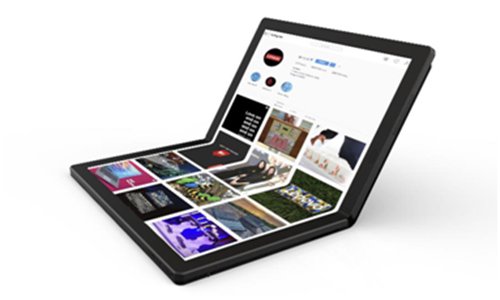As US cuts Chinese supplies, it only ends up damaging itself
Source: Global Times Published: 2020/8/23 21:07:44

Photo: Courtesy of Lenovo
The US crackdown on Chinese companies, motivated by politics, has begun to cause disruptions in the supply chain for some key products in the US ranging from electronic devices for students taking remote courses to personal protective equipment (PPE) for healthcare workers.
Experts said that with US President Donald Trump's continuous politicizing of Chinese suppliers in these key areas, shortages will worsen with more reciprocal effects that will not only hurt the Chinese side but also the American people.
Schools across the US are encountering a shortage of laptops and other equipment necessary for online learning, and some may have to wait for months to get a laptop, the Associated Press (AP) reported Sunday, based on a study of more than two dozen schools, districts in 15 US states, suppliers and laptop suppliers in the US.
Tom Baumgarten, superintendent of the Morongo Unified School District in the US state of California, planned to order 5,000 of Lenovo's Chromebooks in July, but his supplier put a stop to his plans, saying Lenovo was being "stopped by a government agency because of a component from China that's not allowed here," according to the AP, noting that the delays started in the spring and intensified because of disruptions of supply chains.
On July 20, the US Department of Commerce's Bureau of Industry and Security added 11 Chinese companies to the Entity List.
Among the 11 companies were Hefei Bitland Information Technology Co, a supplier to laptop producers including Lenovo and Asus, according to media reports.
"The shortage in the US is due to the disruption of the industrial chain caused by the COVID-19 outbreak and the Trump administration's sanctions against some Chinese companies," Liang Zhenpeng, a senior industry analyst, told the Global Times on Sunday, adding that more than half of the laptops in the US are produced in China.
In addition to laptops, there may also be shortages of other remote teaching equipment such as cameras, Liang noted.
Lenovo and Dell did not respond to questions over the laptop supply shortage in the US as of press time Sunday.
In addition to education items, other key products for the American people that are facing shortages include PPE.
There is still a severe shortage of PPE for US health-care workers including those involved in the battle against COVID-19, financial news channel CNBC reported Saturday. The report linked the reasons for the shortage to the US reliance on outsourcing PPE manufacturing to China and concerns about so-called fraud.
There has been a lack of understanding of Chinese standards in destination markets, analysts said.
"The Chinese quality requirements for masks are no lower than those of the FDA or CE, but those who receive these foreign markings don't necessarily meet domestic standards," Bai Yu, president of the Medical Appliances Branch of the China Medical Pharmaceutical Material Association, told the Global Times.
Bai predicted that more than 95 percent of China's mask producers will go bankrupt, mainly because they do not have the FDA or CE markings that would allow them to export. These companies' production capacity is sufficient to supply the whole world.
Despite the hurdles, China has been a major provider of PPE to the US.
As of August 2, China had provided 26.5 billion masks, 330 million protective gowns, 31 million pairs of protective goggles, 610 million pairs of surgical gloves and 11,500 ventilators to the US, Foreign Ministry spokesperson Wang Wenbin said at a press conference on August 7.
China is willing to ensure that economic and trade matters go smoothly in an effort to guard global free trade, Hong Shibin, an expert in manufacturing production supply chains, told the Global Times on Sunday.
However, the Trump administration's antagonistic moves targeting China have gone beyond what a company can manage, and supply shortages may persist if the US government doesn't make a change, Hong noted.
Posted in: INDUSTRIES